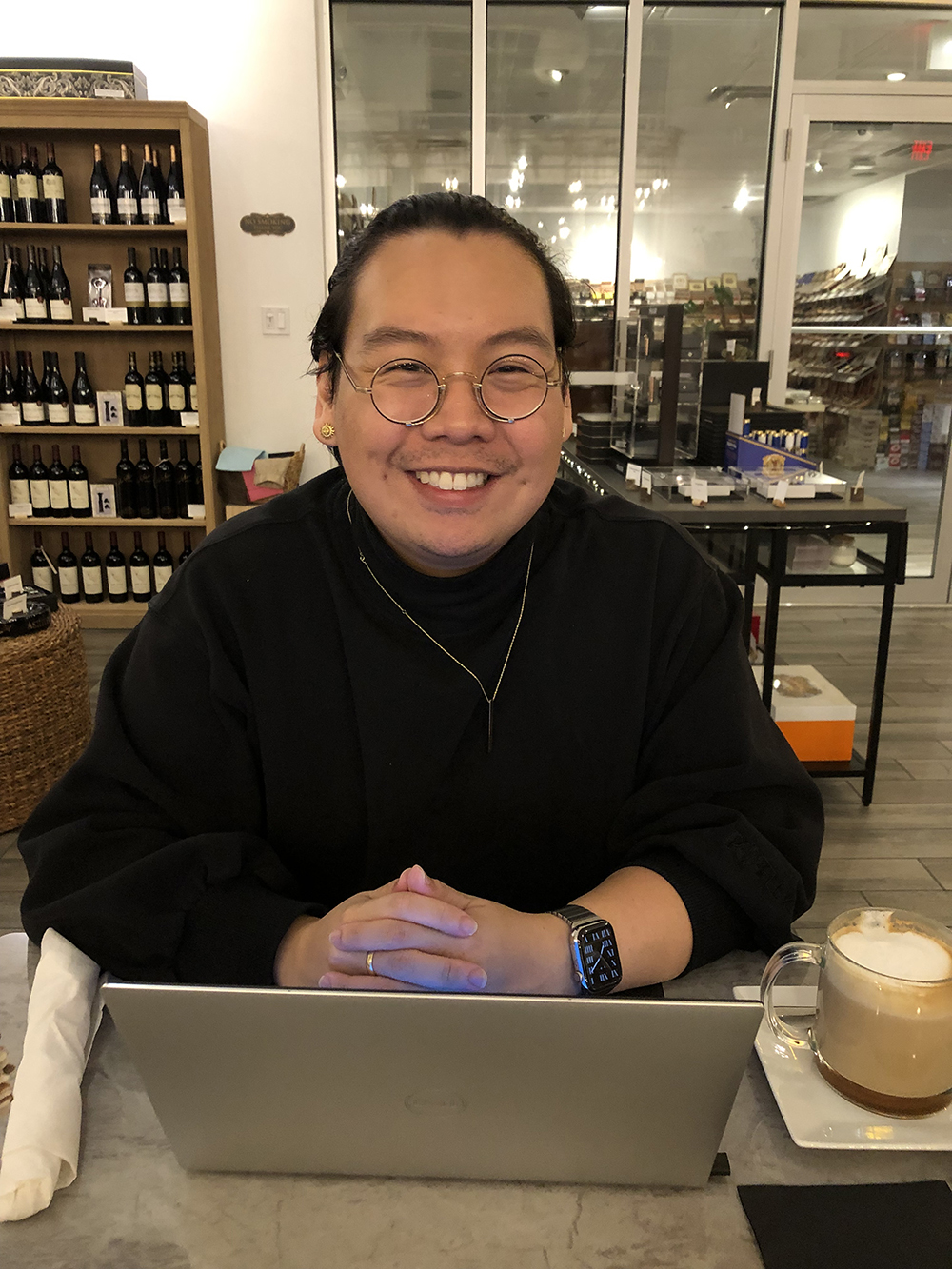
Charles E. Schmidt College of Science Mathematics Ph.D. candidate Dominic Gold joined the department in the Fall of 2017.
This spring, Dominic Gold will receive a Ph.D. in Mathematics with a concentration in applied cryptography as well as data science.
Congratulations, Dominic!
What are your research interests?
At the moment, I am interested in using topological feature extraction to gain further insights on latent shape structure embedded within data directly. These discriminating features extracted through topological data analysis (TDA) are used to augment existing machine learning and deep learning models. Such use cases are abundant in the realm of biomathematics.
In addition, I have great interests in applied cryptography to permit secure end-to-end data transference of sensitive patient data. In this field, I research homomorphic encryption (HE) which permits mathematical operations to be done directly on encrypted, ciphertext data by a semi-honest server, ensuring the user's data privacy is not broken.
While my current research agenda consists of both fields indepdently, my dissertation realizes their fruitful intersection. Together with my advisors Dr. Francis Motta and Dr. Koray Karabina, my work aims to realize a dual benefit to the fields of topological data analysis and homomorphic encryption: TDA's feature extraction increases efficiency of HE through extracting discriminating features (and thus lowering ciphertext size), while HE provides provable security in the fields where TDA has historically found its success.
What are your past/current research projects?
In the past, I worked on the mathematical foundation to realize the intersection of TDA and HE. This project involved the creation of multiple HE-friendly algorithms which can perform the fundamental Reduce algorithm from TDA on ciphertexts directly.
Now, I aim to realize the performance gains in both encrypted model training and inference that TDA provides HE-based models (namely, logistic regression). I am training encrypted logistic regression models on TDA-preprocessed data and comparing it to naive preprocessing methods (which yield the same number of covariates) to quantify these performance gains.
In addition to this, I have also partnered with AI researchers at Rice University and Meta to create linear boundary decision maps for use in deep neural networks. These encrypted "splines" show promise to allow simple region-based decision using linear functions on encrypted data.
Lastly, I am funded by a grant through my advisor, Dr. Francis Motta, to predict protein behavior through extracting topological features from their thee-dimensional structural data. We are currently establishing baseline results on an updated version of the Swiss-Prot dataset, and plan to use a variety of models and techniques to best predict protein transcription factor (TF) behavior.
Tell us about your research experiences, i.e., conference presentations, publications, research ventures with faculty, other students?
I have presented research at three major conferences thus far. I have given a talk at the Joint Mathematics Meetings (JMM) 2023 in Boston, MA; a poster presentation at the 32nd USENIX Security Symposium (USENIX) in Anaheim, CA; and a short paper with poster presentation at ACM Conference on Computer and Communications Security (CCS) 2023 in Copenhagen, Denmark.
In terms of publications, I currently have my short paper from CCS 2023 published in the ACM Digial Library. An extended version of this paper is in both arXiv and ePrint, submitted to IEEE Transactions on Dependable and Secure Computing. This semester, I am working on three more projects as described above, and plan to turn each of them into their own publication as well.
What’s life like at FAU?
The campus is beautiful and the weather can't be beat, especially during the fall and winter months. I especially love how walkable the campus is and how central the shaded Breezeway is to the entire campus. I also frequently use the on-campus gym and gym classes.
What attracted you to FAU?
I went to FAU for my undergraduate degree, so I already knew a majority of the professors in the mathematics department. My family also lives close to the area, so I was able to live with them during my graduate studies.
What has been the most beneficial aspect of your time here at FAU?
The size and tight-knit nature of the mathematics department makes for, in my opinion, a very condusive environment for budding researchers in the fields of applied mathematics. It is not so small that one cannot find an expert in any particular field, but it is not so large to be impersonal. I do not think I would be at the point my career if it weren't for the close but still-independent oversight by my advisors Dr. Motta and Dr. Karabina.
Additionally, the student travel office has been very generous in helping me afford conference travel to the three conference discussed above.
What are your plans for after graduation?
I have just signed a full-time offer from Johns Hopkins University Applied Physics Lab to work as a Senior Professional Staff on some projects. However, I plan to continue my existing collaborations with my advisors and researchers I have met at conferences, both on my own time as well as through internal research development funding available within the lab.